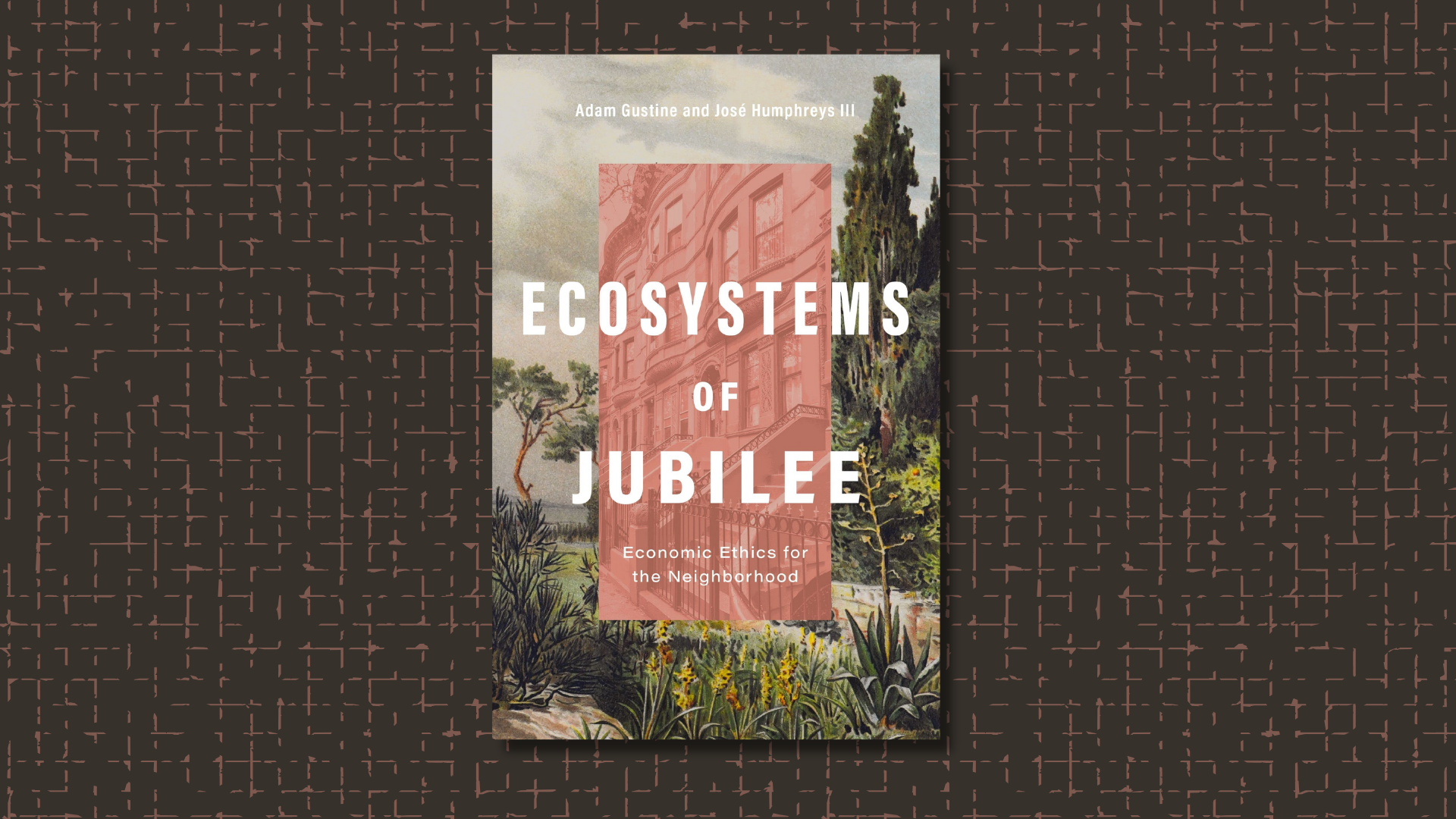Ecosystems of Jubilee
Economic Ethics for the Neighborhood
José Humphreys and Adam Gustine
Zondervan, 272 pages
The United States economy is riding high these days—at least when you look at macroeconomic indicators: inflation has cooled from post-pandemic peaks, job growth and low unemployment are tipping the scales in favor of the average laborer as companies compete to retain talent, and more and more migrants continue to make the risky trek to our shores in search of a better life than would be possible back home. In 2023, The Economist ranked the US as having the third best economic trajectory of Organization for Economic Cooperation and Development (OECD) countries—behind only Greece’s rebounding economy and South Korea’s surprising performance.
However, these trends seem to contradict on-the-ground experiences. Polls indicate that most Americans believe the economy is headed in the wrong direction. In my Oregon hometown, weary residents struggle to afford the roof over their heads as a thriving wine industry raises home prices; in Chicago, where I served in youth ministry, structural racism and class dynamics continue to divide. I suspect that you too are familiar with economic disparity, either your own or that of your neighbor.
The disconnect between positive macroeconomic trends and on-the-ground perception is a blaring alarm bell, which is my starting point for reading Ecosystems of Jubilee, by Rev. José Humphreys and Dr. Adam Gustine. Chapter by chapter they create a reflective space for readers to imagine a faithfulness that is at once relevant to these contemporary concerns and also consistent with a biblical witness of a just society.
As their title suggests, they do so by bringing an ecological lens to economic concerns. Specifically, they trace the “life-giving entanglements” that connect humans with our community and determine the work we do and the standard of living we can expect to achieve.
Although this lens is based on the latest science, it is not so much a new way of looking at the world as a return to an ancient way of seeing the world. Notably, the biblical Hebrew phrase for covenant-making, “to cut a covenant-bind,” is evocative of a worldview of interconnection where restrictive entanglements are pruned and new entanglements are possible.
When thinking ecologically, it is important to consider the agent or “change-maker” in the context of a larger system. For Christians who practice our faith through partaking in congregational life, this context is almost always the neighborhood: think of how many Covenant churches have their neighborhood or city in their name or mission statement! Similarly, Humphreys and Gustine proportion their economic ethics to the scale of the neighborhood, because at that level congregations have the power and responsibility to effect positive change.
The authors take their cues from the economic ethics of the Old Testament, beginning with the simple practice of “gleaning,” or leaving the excess of the field for the poor (Leviticus 19), followed by the rest of fallow fields and foregone productivity of the Sabbath year, and the return of lands and freeing of slaves during the year of jubilee (Leviticus 25). After theological reflection and historical contextualization to help translate these ancient practices into modern-day life, the authors offer practical examples, including a number of Covenant ministries and partners; other examples come from congregations and groups across the left-right spectrum, implicitly making the argument that politics is no excuse to shirk from these vocations.
I imagine a small group in the church basement reading Ecosystems of Jubilee. Perhaps the readers are driven by concerns over the economic despair they see just outside the church walls, or perhaps this book comes naturally as the third book in a Pentateuch-themed study series (the first book would be a “creation care” book that complements Genesis; the second would be “liberation”-themed to go with Exodus).
One way to shift our focus is through participating in congregational life together and spurring on our congregation to become aware of its economic entanglements with its surrounding parish. Ecosystems of Jubilee shakes us out of our complacency and awakens us to our responsibilities to the neighborhood where we find our identity. Once we have become accustomed to the rhythms of gleaning, jubilee, and Sabbath, I suspect we will realize that there truly was never any other way to be the church in today’s world.














